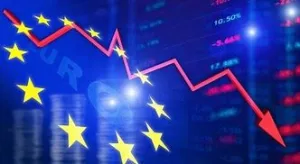Trump Tariffs 2025: Global Markets Reeling as Tariffs Rattles Investors and Commodities Sink
Global financial markets have been left reeling once again, as President Donald Trump’s aggressive trade policies continue to stoke uncertainty and fear among investors. Last week, Trump ignited a fresh wave of market turmoil after announcing sweeping tariffs on key US trading partners, arguing that these measures were long overdue responses to what he described as years of unfair treatment and exploitation.
The announcement triggered an immediate sell-off across major stock exchanges, with Wall Street leading the downturn. The S&P 500 and Dow Jones Industrial Average both posted significant losses, extending a pattern of volatility that has shadowed markets since trade tensions began to escalate. Asian and European markets followed suit, with investors pulling out of equities in favour of safer assets like government bonds and gold — although even traditional safe havens have seen mixed performances amid the chaos.
Beyond equities, commodities markets have also suffered a heavy blow. Concerns about weakening global demand — especially from China, the world’s largest consumer of many raw materials — have sent prices for oil, copper, and other industrial staples tumbling. Brent crude and West Texas Intermediate both fell sharply, while metals such as aluminium and zinc recorded their steepest declines in months. The selloff reflects growing fears that the tit-for-tat nature of escalating trade conflicts could severely dampen industrial activity worldwide.
Trump’s tough rhetoric, claiming that “countries are lining up” to negotiate better deals with the United States, has done little to soothe market nerves. While the White House insists that its hardline approach will eventually secure fairer terms of trade, businesses and investors are bracing for potential retaliatory measures from major economic players like China, the European Union, and Canada. Such countermeasures could further restrict global trade flows, exacerbate supply chain disruptions, and erode corporate earnings.
Analysts warn that this unpredictability is already eroding business confidence. “The longer this uncertainty lingers, the more damage it does to investment decisions and hiring plans,” said a senior economist at a leading global bank. “Firms are pausing capital expenditures because they simply don’t know how far this trade war will escalate.”
Critics of the Trump administration’s strategy argue that the tariffs risk backfiring by raising costs for American businesses and consumers alike. Higher import prices could stoke inflationary pressures at home, forcing the Federal Reserve into difficult policy choices at a time when it is already grappling with tightening monetary conditions.
At the same time, some industry leaders concede that there is merit in addressing imbalances in global trade practices — particularly with China, which has long faced criticism for intellectual property theft and state subsidies. However, they caution that diplomacy, rather than economic brinkmanship, might yield more sustainable outcomes.

As markets brace for the next chapter in this unfolding trade saga, all eyes are on upcoming negotiations and potential retaliatory actions from affected countries. Until there is clearer resolution, volatility seems set to remain the order of the day, with ripple effects extending well beyond stock tickers and commodity prices — potentially influencing everything from global supply chains to the pace of economic growth worldwide.


